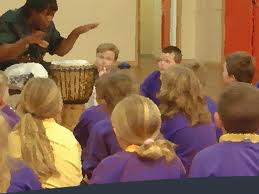
What if I could suggest a Sunday School lesson method which will increase involvement/participation, retention (remembering), evangelism, and preparation of new teachers? Would you be interested in the method?
I have been convinced recently that many Sunday School teachers and leaders need to make an adjustment in their thinking, planning, and lesson presentation. This is true because of orality, a tendency or preference by some people today for the spoken word rather than the written word.
I have heard the arguments. Some would proudly boast that we are an educated society. They would say that orality is only a choice when there is no written language. That is just not true. And it began all the way back to the time of Jesus. There was a lot of literacy (ability to read and write) in Jesus’ day in the Jewish, Roman, and Greek cultures. And yet Jesus was an excellent and regular teller of stories and parables.
And today in the United States, researchers tell us that about 60% of our society does not like to read. A portion of that number cannot read, a portion can’t read well, and a portion can read well but do not like to read. How does that piece of information impact the church? How does the fact that 60% of our attenders do not like to read impact our discipleship efforts with them? How does it impact our Sunday School classes?
Think with me about some evidence of this in our churches, Sunday Schools, and classes. Pastors and directors tell me that it is often challenging to find enough teachers for existing classes. How often do attenders prepare for class by reading pupil books? How often are attenders reading their Bibles daily. On Monday morning, how much of the lesson do our attenders remember?
Many of you would recognized the name Avery T. Willis, Jr. For many years, Avery was one of the missionaries of the Southern Baptist Convention’s International Mission Board. And he was also the author of a great Discipleship resource, MasterLife. During the latter part of his life, he invested a lot of time and effort toward orality because of its importance, not just in primitive cultures. Avery identified 888 stories in the Bible.
The method which can impact involvement, retention, evangelism, and new teachers is based on telling the Bible story. Story telling the Bible is not just for children. In this five-part series, I will begin to unpack this simple method and the possibilities for its use, particularly for adults. I ask you to do two things:
- keep an open mind and
- look for opportunities to try out the method.
In Part 2, I will focus on the way this method leads to greater involvement and participation of attenders (and others). In the meantime, observe what is happening in class this week. And compare notes with what is coming in this series. Let’s give God our best efforts. Let’s impact the body of Christ and world! Be revolutionary!
Leave a Reply